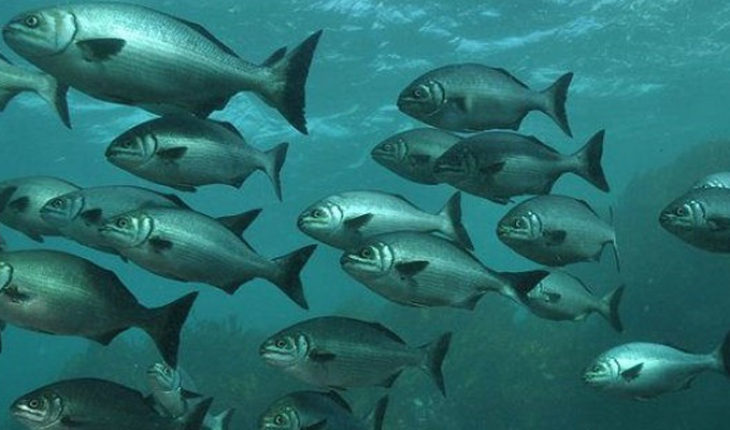World.- According to a new report by the International Union for Conservation of Nature (IUCN), ocean warming and the consequent loss of oxygen from water is affecting more and more fish species and altering ecosystems.
Climate change and nutrient pollution cause oxygen loss in the oceans are the main factors that cause oxygen loss in the oceans
The main factors that cause oxygen loss in the oceans are climate change and nutrient pollution, and the latter affects coastal areas. As the ocean warms, its waters contain less oxygen and become more floating, resulting in a smaller mixture of oxygen-rich water near the surface with the ocean depths, which naturally contain less oxygen.
Nutrient pollution causes the loss of oxygen in coastal waters, as waste from fertilizers, wastewater, animals and aquaculture causes excessive algae growth, which in turn depletes oxygen as it decomposes.
This ocean deoxygenation report is the largest peer-reviewed study so far on causes, impacts and possible solutions to ocean deoxygenation. “With this report, the scale of the damage that climate change is causing in the oceans is put in the spotlight,” said Grethel Aguilar, acting director-general of the International Union for Conservation of Nature (IUCN).
Oxygen-free regions expand
Ocean regions with low oxygen concentrations are expanding, with around 700 sites worldwide affected, compared to just 45 in the 1960s. Over the same period, the volume of anxical water – completely depleted areas of oxygen – in the world ocean has quadrupled, according to the report.
Ocean oxygen depletion is threatening marine ecosystems that are already under pressure due to ocean warming and acidification. To stop the worrying expansion of oxygen-poor areas, greenhouse gas emissions, as well as nutrient pollution from agriculture and other sources, need to be decisively curbed.
“Potentially dire effects on fisheries and vulnerable coastal communities mean that the decisions made at the current COP25 are even more crucial. To curb ocean oxygen loss along with other disastrous impacts of climate change, world leaders must commit to reducing emissions immediately and substantially,” says Aguilar.
Deoxygenation is altering the balance of marine life, favoring oxygen-tolerant species (e.g. microbes, jellyfish and some squid) at the expense of oxygen-sensitive species (many marine species, including most fish).
Some of the ocean’s most productive biomes – which support one-fifth of the world’s wild marine fish catch – are made up of ocean currents that carry nutrient-rich but oxygen-poor water to the shores bordering the edges eastern ocean basins of the world. As naturally oxygen-poor systems, these areas are particularly vulnerable even to small changes in ocean oxygen. The impacts here will spread and affect hundreds of millions of people.
Tuna and sharks, in danger of overfishing
Groups of species such as tuna, marlin and sharks are particularly sensitive to low oxygen due to their large size and energy demand. These species are beginning to be dragged into ever shallow layers of oxygen-rich water, making them more vulnerable to overfishing. Very low ocean oxygen can also affect basic processes such as the cycle of crucial elements for life on Earth, such as nitrogen and phosphorus, the report warns.
The ocean is expected to lose between 3 and 4% of its global oxygen inventory by the year 2100 in a scenario where everything remains the same, but the global average hides local changes that are predicted to be , more severe at mid and high latitudes. Most of the losses are expected to be concentrated at the top of the water column, which is the richest in marine biodiversity.
Decisions will determine whether our ocean continues to maintain a rich variety of life or whether habitable marine areas are lost
“This is perhaps the latest wake-up call from humanity’s uncontrolled experiment on the world’s oceans as carbon emissions continue to rise,” confirms Dan Laffoley, senior adviser to marine sciences and conservation IUCN’s Global Marine and Polar Programme and co-author of the report.
Urgent global action is needed to overcome and reverse the effects of ocean deoxygenation. As the researchers explain, decisions made at the ongoing climate conference will determine whether our ocean continues to maintain a rich variety of life or whether habitable and oxygen-rich marine areas are increasingly lost, progressive and irrevocable.





